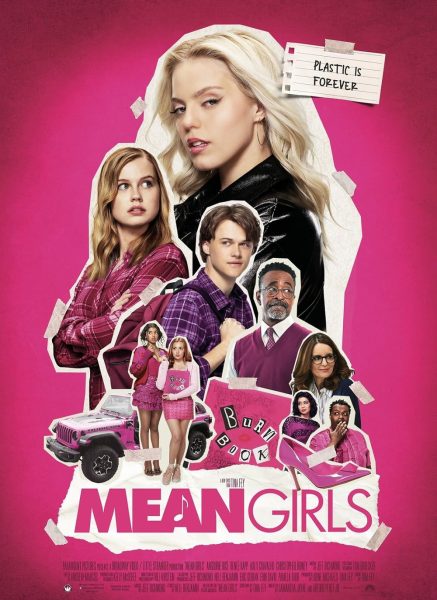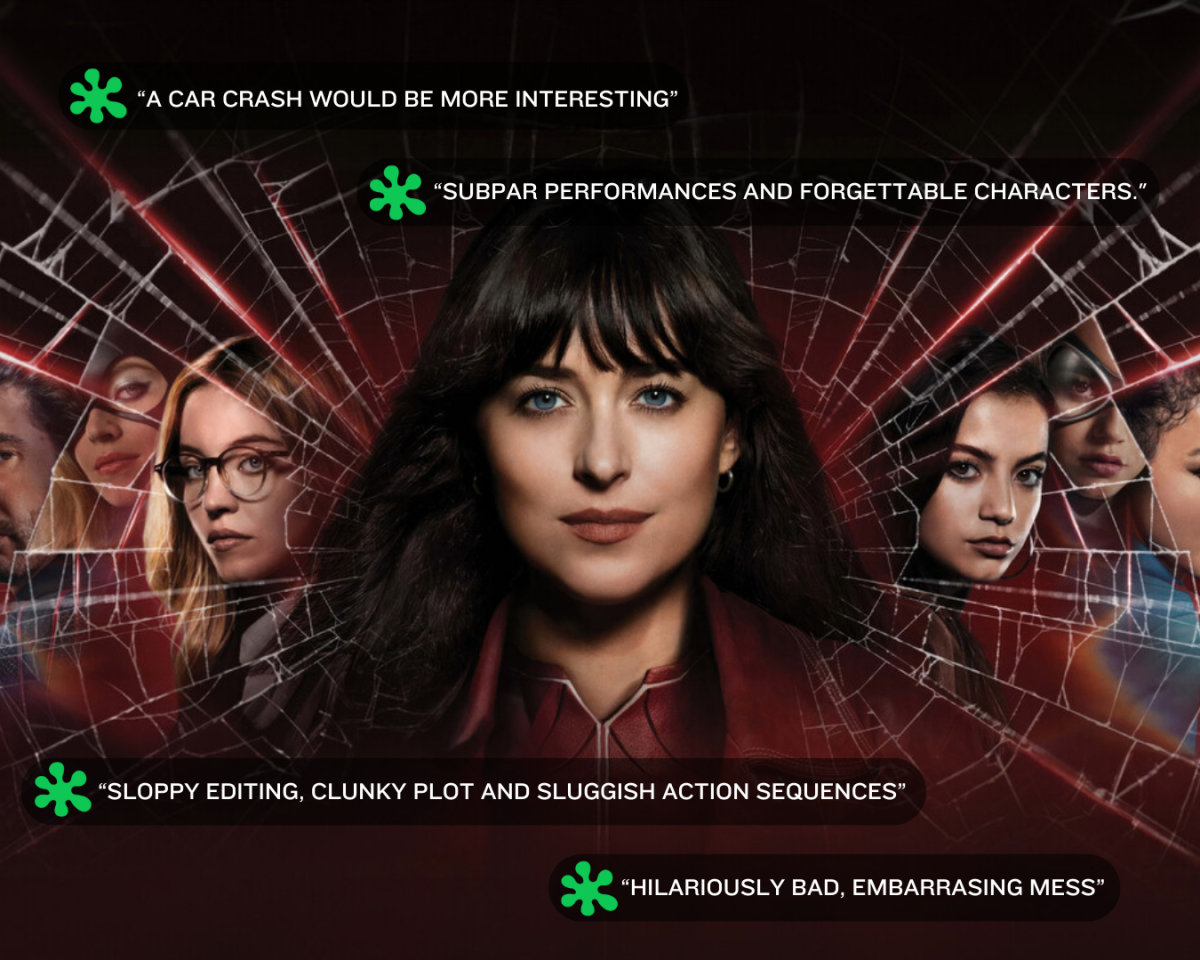
This review contains spoilers.
In high school hallways where teenage drama permeates and gossip circulates like fashion fads, the Plastics reign supreme once again in “Mean Girls” (2024). Though this teen musical comedy based on the 2004 film and the Broadway musical is a refreshing take on the original story, it fails to capture the magic of the original 2000s film.
The film maintains the essence of the film’s original plot while infusing it with a contemporary flair, with songs allowing fans to reminisce about their favorite Plastics. Former “Saturday Night Live” star Tina Fey, the creator of the Broadway adaptation, co-starred in and wrote the screenplay for the original film. She also co-produced, wrote and starred in the screenplay for the 2024 adaptation, reprising her role as Ms. Norbury, a mathematics teacher. Samantha Jayne and Arturo Perez Jr. made their debuts as the co-directors for the film.
Cady Heron, portrayed by Angourie Rice, moves back to the United States from Kenya and tries to navigate her way through high school dynamics and adjust to a new social environment after being home-schooled. She is exposed to the world of cliques — jocks, nerds and alphas — and quickly befriends outsiders Janis ‘Imi’ike and Damian Hubbard, portrayed by Auliʻi Cravalho and Jaquel Spivey, respectively. The narrative unfolds with Cady entangled in a web of manipulation spun by the beloved queen bee Regina George, portrayed by Reneé Rapp. Rapp reprises her role as Regina from the Broadway adaptation, proving once again that fashion is not just a choice; rather, it’s a survival strategy. Alongside Regina is her posse, which consists of Gretchen Wieners and Karen Shetty, played by Bebe Wood and Avantika, respectively.
Cady’s choices lead to many complications that mirror previous adaptations, such as her romance with Regina’s ex-boyfriend, Aaron Samuels, portrayed by Christopher Briney, whom she meets in her calculus class and asks her what day it is: “It’s October third.” The narrative also includes familiar themes such as lying, betrayal and renouncing toxic friendships, as well as the return of the iconic Burn Book.
Rapp steals the spotlight with a stellar performance as the ultimate mean girl. Through the iconic tracks “Meet the Plastics” and “World Burn,” her portrayal of Regina allows her to retain the character’s devious and seductive nature.
Regina’s entrance is a spectacle in itself: she is adorned in a black leather jacket and an unmistakable “R” necklace that sends Cady into a panic. Rapp’s old-school diva command gives Regina swagger, with her vocal prowess outshining the more forgettable songs on the soundtrack.
As the film, exuding a light-hearted atmosphere, makes the transition from Broadway to the big screen for a second time, it experiences some changes. 14 songs from the Broadway musical — including notable ones such as “Where Do You Belong?”, “Fearless” and “What’s Wrong with Me? (Reprise)” — were cut from the film’s soundtrack.
In adapting to today’s teen culture, the film’s story underwent notable social modifications. It removes some problematic or outdated sayings, especially in its treatment of women and their body image. But one fallthrough is calling Regina a “cow” instead of a “s***.” It reinforces negative stereotypes about women’s bodies, contradicting the intended goal of eliminating problematic language.
The original brilliance of “Mean Girls” appears to have lost its edge, as this version lacks the same pronounced viciousness. Instead, the film and soundtrack prioritize the values of the modern decade, such as inclusivity and the social consciousness embraced by today’s youth. This shift aims for a more considerate and socially-aware approach.
Despite these adjustments, the film maintains its original tone but struggles to capture the challenging, unrelenting nature of 21st-century teenage girlhood. Unfortunately, one of the less favorable societal changes is the integration of TikTok film sequences, which weave their way into the adaptation in a disconcerting and choppy manner. Although the film succeeds in modernizing certain outdated aspects of the 2004 film, it unintentionally worsens an already-mediocre cinematic experience.
While the latest adaptation of “Mean Girls” offers a nostalgic experience for old fans revisiting the Plastics through a modern lens, it ultimately renders as a lackluster film, failing to recapture the spark that made the original so “fetch.”


















